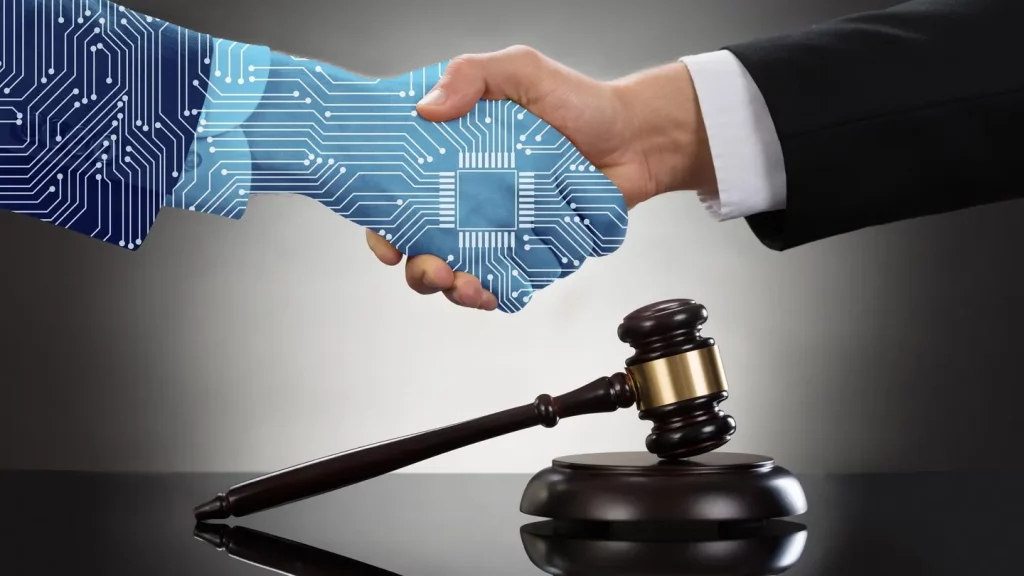Tech Revolution: The Evolution of Global Industry Arbitration

This blog post shall act as a brief survey of the ever-increasing role of technology as used in arbitration for international business disputes.
In today’s interconnected world, where businesses operate across oceans and industries span continents, disputes are inevitable. As global trade grows, so does the need for efficient and effective dispute resolution mechanisms. From as early as the Jay Treaty of 1794—allowing compensation to the new republic for depredations against American shipping during the Revolutionary War—arbitration has been a preferred method of solving international commercial disagreements. Arbitration offers parties a neutral and flexible forum to settle disputes, and the digital age has revolutionized the way arbitration is conducted. To that end, technology is transforming global industry arbitration by making it more efficient, transparent, and accessible than ever before.
Virtual hearings are one of the most significant advancements. Traditionally, arbitration required all parties, arbitrators, and witnesses to be physically present in a single location, often leading to high costs and logistical challenges. While virtual hearings are not necessarily new, the COVID-19 pandemic has accelerated the adoption of virtual hearings and proven that arbitration can be conducted effectively online. Virtual platforms like Zoom, Microsoft Teams, and specialized arbitration software now allow parties from around the world to participate in hearings without requiring travel. Thus, saving time and reducing costs. As a result, virtual hearings have become a staple in modern arbitration, offering a level of flexibility and convenience previously unthinkable.
Technology is also making a significant impact on the management of documents and evidence. Arbitration cases often involve massive amounts of documentation, ranging from contracts and correspondence to expert reports and witness statements. In the past, handling such large amounts of information was cumbersome and time consuming. Digital document management systems, however, have revolutionized the process. These platforms allow parties to store, organize, and share documents securely online, making it easier to access and review evidence. Additionally, advanced search, e-discovery, and data analytics tools enable arbiters and legal teams to sift through large amounts of data quickly, to identify key pieces of information and gain insights that would have been almost impossible to uncover manually.
Artificial intelligence (“AI”) is also becoming more prominent in global industry arbitration. AI tools—when used ethically—can aid in various aspects of the arbitration process, from analyzing vast amounts of legal data to aiding lawyers with researching international agreements and precedents. This can help lawyers craft better arguments and make better strategic decisions for their clients. Moreover, AI can be used to streamline administrative tasks, such as scheduling virtual hearings, managing communications between parties, and further enhancing the efficiency of the arbitration process.
Blockchain technology is another innovation poised to transform arbitration. Blockchain offers a secure way to record transactions and agreements, which can be particularly valuable in arbitration. For example, blockchain can be used to create a transparent and tamper-proof record of all communications and submissions made in arbitration, enhancing trust and accountability, and reducing the chances for disputes over procedural matters.
Despite these advancements, and many more on the horizon, the integration of technology into arbitration is not without challenges. Concerns about cybersecurity and data privacy are paramount, especially when sensitive commercial and legal information is in play. Ensuring that virtual hearings, communications, and digital document management systems are secure is essential for maintaining the integrity of the arbitration process. Further, clear guidelines are needed to promote best practices and ensure that technology use does not compromise the fairness and impartiality of arbitration proceedings.
At bottom, technology is revolutionizing global industry arbitration, making it more efficient, accessible, effective, and transparent. Virtual hearings, digital document management, AI, and blockchain are just a few examples of how technology is reshaping the arbitration landscape. As these technologies evolve, and new advancements are introduced, technology will surely play an increasingly important role in the future of dispute resolution, helping ensure that arbitration remains a practical and effective mode of resolving global commercial disputes.
Article Written by Max Charest
Sources:
Jennifer Abella et. al., Jay Treaty, Brittanica, available at https://www.britannica.com/event/Jay-Treaty (last visited Sept. 8, 2024).
Martin Domke, International Commercial Arbitration, Brittanica, available at https://www.britannica.com/topic/arbitration/International-commercial-arbitration (last visited Sept. 2, 2024).
IBM, What is Blockchain, IBM, available at https://www.ibm.com/topics/blockchain (last visited Sept. 7, 2024).
Maxi Scherer, Remote Hearings in International Arbitration: An Analytical Framework, Wolters Kluwer: Journal of International Arbitration, available at https://www.viac.eu/images/COVID19/Maxi_SCHERER_Remote_Hearings_in_International_Arbitration_An_Analytical_Framework_May_2020.pdf (last visited Sept. 1, 2024).
Steve Kim, Technology and Arbitration: Illuminating Your New Roadmap, Global Arbitration Review (May 10, 2024), available at https://globalarbitrationreview.com/review/the-asia-pacific-arbitration-review/2025/article/technology-and-arbitration-illuminating-your-new-road-map (last visited Sept. 23, 2024).
Payel Chatterjee et. al., Technology and Artificial Intelligence: Reengineering Arbitration in a New World, IBANET (Dec. 20, 2023), available at https://www.ibanet.org/tchnology-and-artificial-intelligence-reengineering-arbitration-in-the-new-world (last visited Sept. 23, 2024).
Marney Cheek and Paris Aboro, International Arbitration and Technology Disputes, Covington Alert, available at https://www.cov.com/en/news-and-insights/insights/2023/03/international-arbitration-and-technology-disputes#layout=card&numberOfResults=12 (last visited Sept. 4, 2024)
Ted Murphy et. al., International Trade Topics to Watch, Sidley Austin LLP (Jan. 19, 2024), available at https://www.sidley.com/en/insights/newsupdates/2024/01/international-trade-topics-to-watch-in-2024 (last visited Sept. 23, 2024).
Davy Karkason, Navigating New Frontiers: International Arbitration Trends for 2024, Transnational Matters U.S. & International Lawyers (Nov. 10, 2023), available at https://www.transnationalmatters.com/emerging-trends-international-arbitration-2024/ (last visited Sept. 23, 2024).
Rana Sajjad Ahmad, Blockchain Arbitration: Promises and Perils, The American Review of International Arbitration—Columbia Law School (Mar. 23, 2023), available at https://aria.law.columbia.edu/blockchain-arbitration-promises-and-perils/ (last visited Sept. 23, 2024).
David L. Evans et. al., How Arbitrators Are Harnessing Artificial Intelligence, American Arbitration Association (Feb. 20, 2024), available at https://www.adr.org/blog/how-arbitrators-are-harnessing-artificial-intelligence#:~:text=Fast%2C%20fair%2C%20and%20full%20of,of%20precision%20in%20their%20work (last visited Sept. 23, 2024).
You May Also Like
